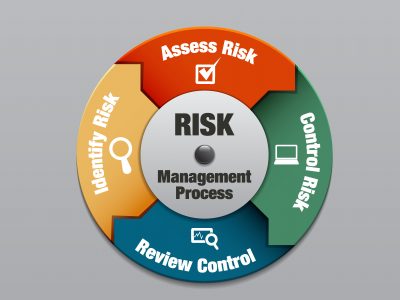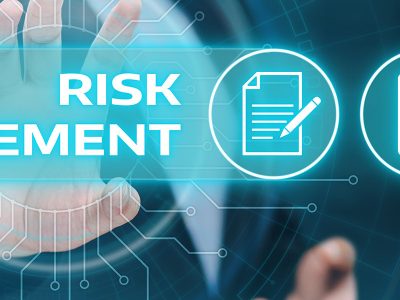Risk is a part and parcel of life. But you might also know that risk rewards unfathomably. Bulb would not have been invented if career was thought about. Space science would not have developed if risk was feared of. Even, Mount Everest would not have been climbed upon, if the risk was thought of as a concern. Risk is rewarding but you should be ready to have it.
Risk management is a significant expense for any company. There are several skilled professionals that need to be recruited and maintain in order to ensure that the risks inherent in the business are being mitigated efficiently. This expense is often a deterrent for smaller firms to not implement risk management. However, the larger firms understand that the value created by risk management activities far outweighs the costs.
Skills required to become a risk professional
As a Risk Professional, you should understand and collaborate with every department in a firm, all while creating connections. Here are some important skills to become risk professional.
Problem-solving: Managing risk is a strategic endeavour. You could be building risk management solutions and processes for an entire organization at the upper levels. In order to succeed in any existing risk management careers, you’ll need to be both thorough and inventive.
Analytical Skill: Analysing threats, evaluating their possible effects, and balancing them against the company’s total risk appetite are the cornerstones of risk management.
Communication: Making sure everyone understands any significant risks and the company’s risk management strategy is an important part of a successful career of risk management. This engraves communication with a variety of groups, ranging from the board of directors to individual employees.
Business understanding: When it comes to risk management careers you first need to be able to identify and analyse a company’s risks, you must comprehend how it operates and all the internal and external elements that can influence its performance.
Risk management is vital in an organization because, without it, a company cannot set its future goals. If a corporation sets goals without taking risks into account, it is likely that they will lose focus if one of these hazards’ manifests. No individual can predict risks accurately in this dynamic environment, but organizations need to prepare for an uncertain and volatile future. Organizations are becoming ever so cautious about learning from past mistakes. Implementation of a robust risk management plan will help an organization build policies and procedures around avoiding potential threats and measures to minimize their impact if it occurs. In India, Risk management offers an array of opportunities for career development. Return on Investment (ROI) is high on Risk Management as it offers great opportunities for growth of the individual.
Economic Resource
The global risk analytics market is growing at a CAGR of 14% as of 2022. The global value of just this sector is expected to reach Rs. 3,89,902 crores $52.33 billion by 2026. In India, 50% of asset growing sector will follow risk management best practises while operating such as delegating risk owners and risk officers.
This is amazing news for all the budding risk analysts, credit analysts, and risk managers out there. The increased spending in this sector would result in more job vacancies and career prospects Also, with most organizations now adopting modern risk management solutions and technology, there is a huge demand for risk managers with these specialized skills.
Risk Management has become one of the most valuable sectors in the globe right now. It is one of the most lucrative career options for both freshers and experienced finance professionals. Upskilling with financial management linked courses or certifications is a great way of gaining access to the jobs in the domain.
Risk management is a great career and upskilling option to make yourself invaluable to any place you work for. Managing risk is crucial for companies of all sizes. Risk management is involved with reducing, managing, monitoring, controlling, or altogether avoiding the adverse effects of various active and potential organizational risks.
Without a system for handling risk and without the help of skilled professionals to engage and minimize this risk, organizations are posed with hurdles for smooth business operations. Risk managers need to develop immediate strategies to minimise or mitigate risks while also preparing their organizations for anticipated risks in advance.
This is why most professionals who invest their time in a financial risk management certification to learn the necessary and key skills are able to enjoy attractive salaries. Risk managers are very valuable to their organizations and thus are remunerated equally well. As a matter of fact, according to Glassdoor, skilled professionals in Risk Management can earn salaries near to ₹34,71,458 per year in India.
The sources of risks have diversified with the increasing dependency on technology and digital infrastructure. Even a data breach or data loss can cost firms tens of thousands if not millions of rupees. Companies must also consider the increasing volatility of the market and the growing interest in experimental systems, platforms, and services.
Risk management covers strategic risk, operational risk, compliance risk, financial risk, market risk, credit risk, reputational risk and even health risks. Thus, professionals in this sector require a holistic approach towards organizational risks, and hence why companies choose to reward their risk management specialists so well.
Risk management goes together with financial management, thus, fuelling an increase in prospects for finance professionals. This will also positively affect the employment of risk managers and risk management professionals.
There is an average growth of 1.31% in the employment of risk managers(Source: Recruiters Inc.). This will result in 50,000 new risk management jobs by 2029. Joining this sector is a great idea for professionals who wish to experience consistent growth in their careers.
Salaries and responsibilities of risk managers
Job responsibilities of a risk manager
Risk managers are tasked with identifying, assessing, and evaluating risks. For instance, there will always be financial and market risks when a company deals with credit transactions or foreign exchange. Risk managers help companies reduce or completely avoid the exposure to these risks.
Even if a risk or an active threat cannot be avoided, it is up to the risk manager to minimize, contain or transfer the adverse effect of the risk. Risk managers also come up with disaster relief plans in case the damage cannot be tackled or mitigated. Risk management professionals are masters of implementing safety nets to manage the different risks they identify.
Let us take an example of risks in foreign exchange. A company might be at threat due to fluctuations in the exchange rates of certain currencies that the company deals in. In such a case, it is the risk manager’s responsibility to plan and implement strategies that can help the company minimize any financial damage.
For instance, the risk manager might choose to liquidate the assets in a later period or recommend the company not to engage in business operations during risky periods in the market. Risk managers can also incorporate contingency plans into the business processes of these organizations for these unprecedented situations.
Another example of how necessary risk managers are can be found when looking at money lending organizations or banks. Credit analysts or risk analysts analyse the history and repayment behaviour of customers (borrowers) to identify if they are eligible to be sanctioned the requested loan amount. Similarly, for large investments (start-ups, corporate loans, or funding), risk managers assess investments and help their companies make suitable investments by identifying risks and bad ventures to avoid losses.
Types of risk managers
- Enterprise Risk Manager
- Financial Risk Manager
- Operational Risk Manager
- Supply Chain Risk Manager
- Digital Risk Manager
Salaries of a risk manager
Risk managers with around one year of experience or even freshers earn an average of ₹6,34,015 per annum (based on 12 risk manager salary packages). Meanwhile, risk managers with 1 to 4 years of experience can earn an average of ₹8,01,764 annually (based on 75 risk manager salary packages).
Experienced risk managers with 5 to 9 years of experience earn ₹11,84,094 on average per annum (based on 69 risk manager salary packages). Veteran risk managers with 10 to 19 years of experience
earn ₹14,91,549 (based on 74 risk manager salary packages) annually on an average. The sky is the limit for financial risk managers with 20 and more years of experience, and they could earn lucrative pay packages. The average salary of a risk manager in India is ₹10,05,456. Salaries that risk managers are offered also depend on their location as well.
THE WAY IS FORWARD, YOU NEED TO ONLY HAVE A CONVICTION
Every greatness is achieved with risk and risk is fun if taken positively but it is the conviction that allows an individual to move forward. “RISK IS MEANT TO BE TAKEN” and risk management is the career to pursue that dream. Risk Management is a field where great scope exists and its demand will rise in future as uncertainties get increasing, whether political or environmental or legal etc.
Be Future Ready
References:
Submitted By: Vaibhav Aggarwal – Member of Student Risk Club (SRC)













